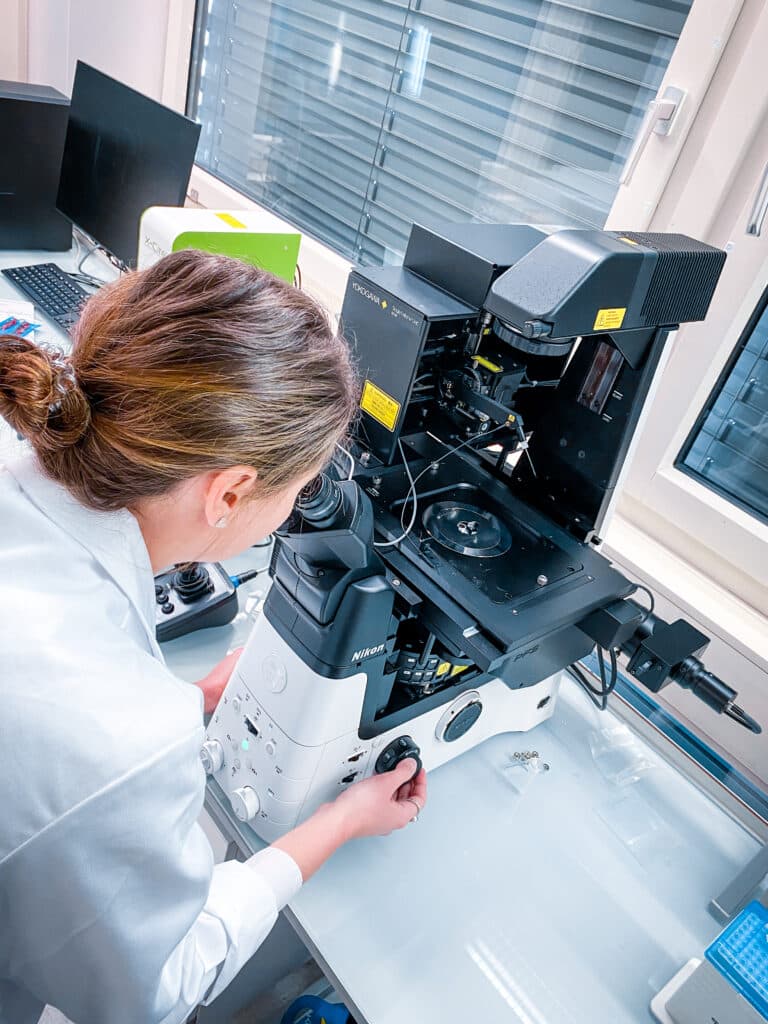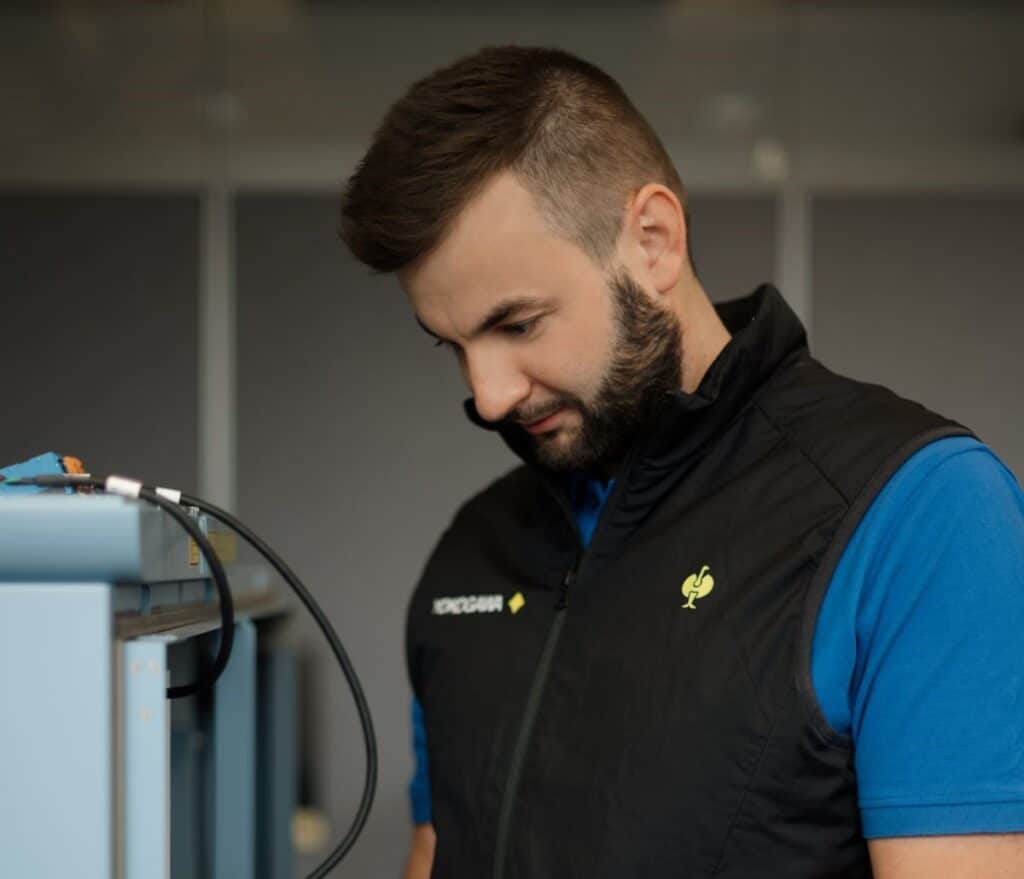It’s a first! This year Yokogawa Germany is placing the newly developed system for single cell manipulation, the so-called Single Cellome™ Unit SU10 as a demo unit at the Nikon Imaging Center in Heidelberg. We cooperated with the dedicated director, Dr. Ulrike Engel. The Center is located in the BioQuant on the Heidelberg life sciences campus.
Nikon Imaging Center
The Nikon Imaging Center (NIC@Uni-Heidelberg) is a core facility for light microscopy at the University of Heidelberg, developed in partnership with Nikon GmbH, business unit microscopy and Nikon Instruments Europe B.V..
The NIC@Uni-Heidelberg was inaugurated in 2005 and has since trained more than 2000 researchers so far.
Core Roles of the NIC@Uni-Heidelberg
The NIC@Uni-Heidelberg core roles are:
- Promote innovation across a broad range of biological research fields by providing access to cutting edge microscopy and imaging equipment.
- Provide training in both basic and advanced light microscopy techniques.
- Serve as a learning hub for both scientists, as well as corporate partners and contributors.
- Develop new microscope setups and imaging techniques in dialogue with users.
Welcome to the Nikon Imaging Center, SU10!
We are excited! In just a couple of days, the Single Cellome™ Unit SU10 will travel from our German headquarter in Ratingen to Heidelberg. It will be placed at NIC@Uni-Heidelberg for one year. If you are an interested researcher ranging from the field of tumor biology, neurobiology to plant physiology, etc. don’t miss your chance to get a product demonstration of the SU10. At Yokogawa, I am the responsible product manager for the SU10 and am delighted to have the chance to present a live demonstration at the Nikon Imaging Center on Thursday, September 29th at 11 AM. Please feel free to join the demonstration and to ask questions about the SU10.

As the number of participants is limited, please send an registration e-mail to Ph.D. Ulrike Engel (ulrike.engel@bioquant.uni-heidelberg.de).
Join the demonstration and learn how to deliver single cells in an automated, fast and efficient way. Will we meet in Heidelberg?


